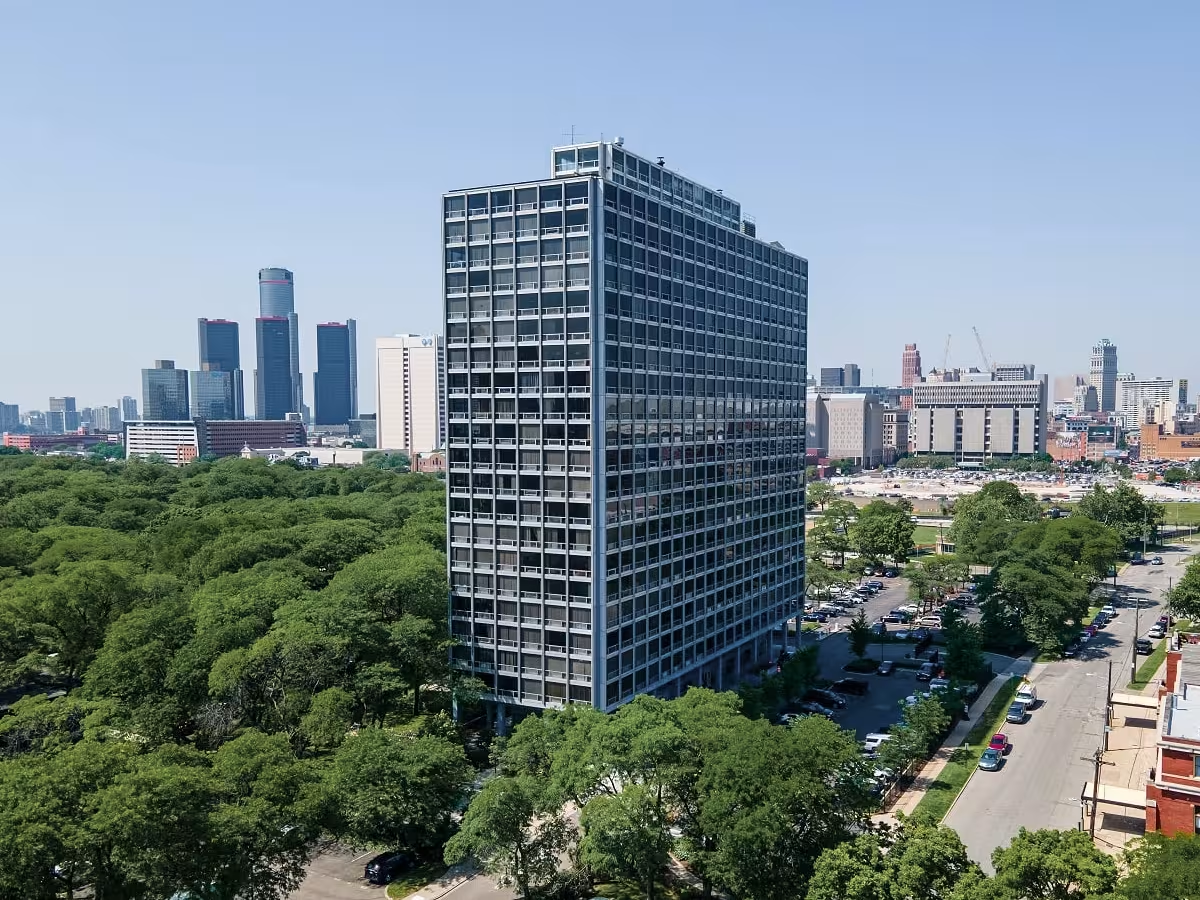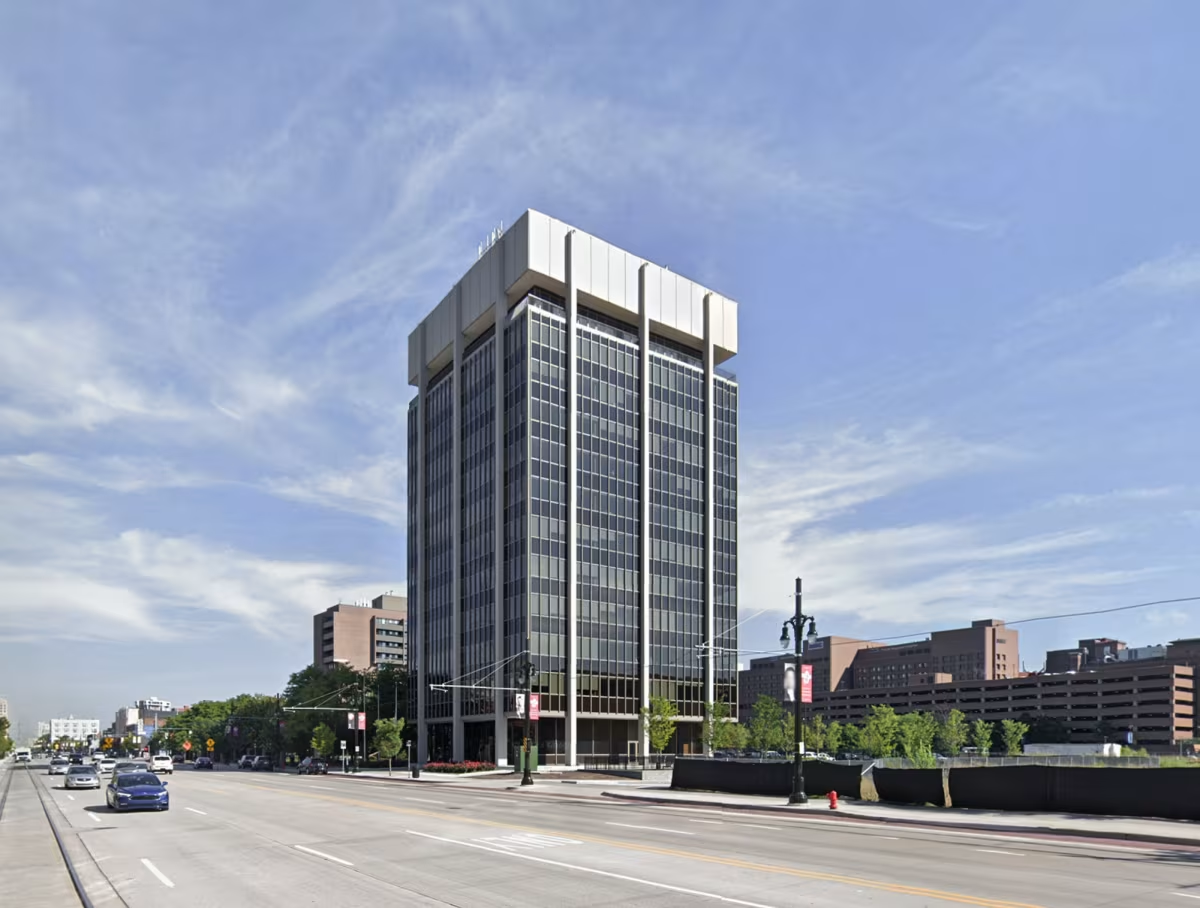Lafayette Pavilion Apartments vs Professional Plaza Tower


Comparing the Lafayette Pavilion Apartments and the Professional Plaza Tower is interesting because they both rise in Detroit, MI, yet they were conceived by two different design teams, Mies van der Rohe and Crane & Gorwic, and were completed at different points in time. They were finished more than 8 years apart.
This contrast within the same city allows us to see how different creative minds interpreted the evolving needs of Detroit across time.
Let's take a closer look!
Height & Size
The Lafayette Pavilion Apartments is clearly the larger tower of the two, both in terms of height and number of floors. It rises to 220ft (67m) with 22 floors above ground, while the Professional Plaza Tower reaches 154ft (47m) with 12 floors above ground.
Of course, each project may have faced different briefs or regulatory constraints, which we don't really know about and could also explain the outcome.
Architectural Style
Both the Lafayette Pavilion Apartments and the Professional Plaza Tower were designed in line with the aesthetic conventions of the International Style style.
At the time, this style was at the height of its popularity. So both Mies van der Rohe and Crane & Gorwic followed what was in many ways expected of them, producing designs that fit comfortably within contemporary architectural norms, rather than breaking with convention.
Uses
Both the Lafayette Pavilion Apartments and the Professional Plaza Tower are primarily residential towers, serving similar roles in the urban fabric.
Originally, the Professional Plaza Tower was designed for medical, but over time it was converted to residential. The Lafayette Pavilion Apartments by contrast has maintained its original role.
In terms of capacity, the Lafayette Pavilion Apartments offers 340 apartments, while the Professional Plaza Tower provides 72 units.
Structure & Facade
The two buildings opted for different structural and facade solutions.
The Lafayette Pavilion Apartments uses a Frame system, which relies on a regular grid of columns and beams to sustain its weight, while the Professional Plaza Tower uses a Framed Tube In Tube system, that combines a strong central core with a perimeter tube of columns.
And when it came to the facade, the Window Wall went with a Window Wall facade, which uses panels fitted between floor slabs, leaving slab edges visible, while the Professional Plaza Tower opted for a Curtain Wall facade, that uses a lightweight glass curtain wall hung from the structure.
| Lafayette Pavilion Apartments | Professional Plaza Tower | |
|---|---|---|
| Mies van der Rohe | Architect | Crane & Gorwic |
| 1955 | Construction Started | 1964 |
| 1958 | Year Completed | 1966 |
| International Style | Architectural Style | International Style |
| Residential | Current Use | Residential |
| 22 | Floors Above Ground | 12 |
| 67 m | Height (m) | 47 m |
| 340 | Residential Units | 72 |
| Frame | Structure Type | Framed Tube In Tube |
| Concrete | Vertical Structure Material | Concrete |
| Concrete | Horizontal Structure Material | Concrete |
| No | Facade Structural? | Yes |
| Aluminum, Glass | Main Facade Material | Aluminum, Glass |
| MI | State | MI |
| Detroit | City | Detroit |
| 1 Lafayette Plaisance | Address | 3800 Woodward Avenue |